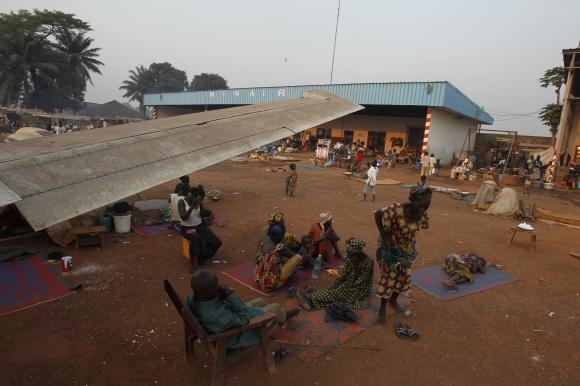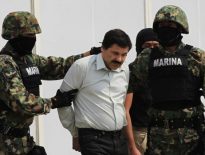(Reuters) – France has drawn up a list of eight citizens of Central African Republic, including former President Francois Bozize, on whom it believes the United Nations should impose sanctions, diplomatic sources said.

The U.N. Security Council backed an African and French intervention in December to quell sectarian conflict in Central African Republic (CAR), which began when Muslim Seleka rebels seized power in the mostly Christian country.
Last month, it added the possibility of targeted sanctions – travel bans and asset freezes – to an existing sanctions regime.
A U.N. Security Council committee will now be able to blacklist anyone who violates an arms embargo as well as human rights abusers and those who support armed groups by exploiting natural resources, among other things.
France has identified eight people and has put forward that list to some members of the Security Council, said one French diplomatic source. It includes ex-Seleka, anti-balaka, Bozize and some of his sons.
A second French source confirmed the information.
It was passed on to the United States and Britain last week so that the legality of targeting those individuals could be assessed before taking it to other council members, the source said. The objective is to create a final list by early March.
Any designations will have to meet the strenuous U.S. criteria for a unilateral U.S. designation in order for Washington to support it, a Security Council diplomat said.
CAR has been paralyzed by cycles of violence since Seleka rebels ousted Bozize. Their months in power, which ended when former interim President Michel Djotodia stepped aside in January, were marked by killings, looting and other abuses, leading to the emergence of Christian militia opposed to them.
These militia and gunmen loyal to Bozize attacked the capital at the start of December, triggering more killings and reprisals that have deepened inter-religious conflict.
With the country sliding into what the top U.N. human rights official termed ‘ethnic-religious cleansing’, as Muslims flee north to escape reprisals by Christian militia, France wants to speed up the reconciliation process.
Paris has been working on the list since December but only finalized it after French Foreign Minister Laurent Fabius met interim President Catherine Samba-Panza on February 7.
The list is under discussion as it’s extremely complicated to find all the necessary elements, said one of the sources. It may not be the final list, but it’s balanced between all actors in the conflict.
Any targeted sanctions proposals would need to presented to the 15 countries in the Security Council for the sanctions committee to approve it, which it usually does by consensus.
Security Council diplomats say that the threshold for sanctioning entities and individuals is higher now in the wake of recent successful legal challenges against U.N. designations in European courts.
Those challenges came about in the face of some governments’ refusals to supply judges with confidential intelligence material used to justify the blacklistings.
Council members, diplomats say, want to ensure that any new blacklisting moves could withstand legal challenges before agreeing to them in New York.
The French sources said there was enough evidence to suggest Bozize was trying to take advantage of the chaos and work with some anti-balaka.
It’s not structured, but he is trying to bring some anti-balaka behind him. He is very active, one diplomat said.
(Additional reporting by Louis Charbonneau at the United Nations; Editing by Angus MacSwan)





